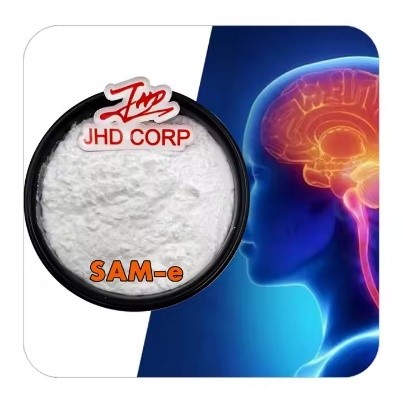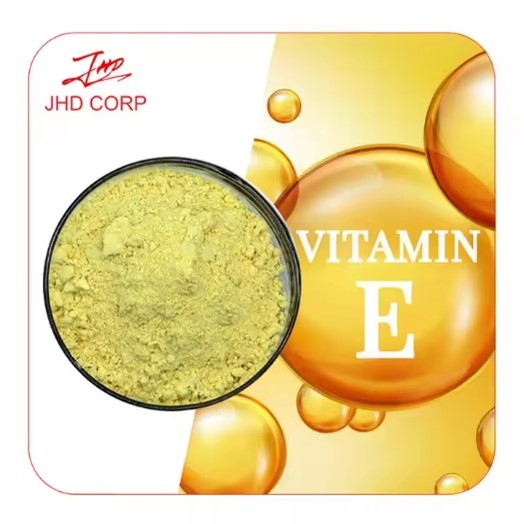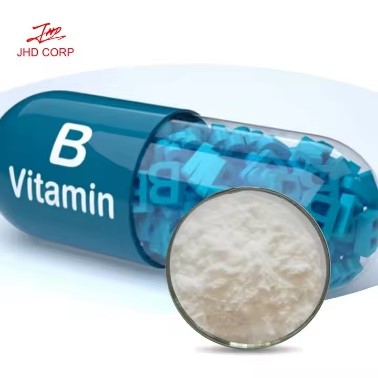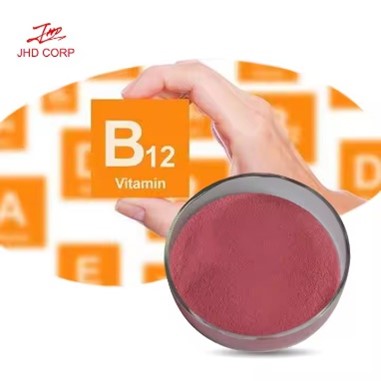Welcome to JHD Nutrasource!
Shop
Showing 10–18 of 25 results
-

Pyridoxal 5-phosphate Monohydrate
Pyridoxal 5'-phosphate Monohydrate (PLP) is the active form of Vitamin B6 and serves as an essential cofactor for numerous enzymes involved in amino acid, carbohydrate, and fat metabolism.
-

Pyridoxine Hydrochloride
Pyridoxine Hydrochloride (Vitamin B6) is a water-soluble vitamin essential for various physiological functions, including amino acid metabolism, neurotransmitter synthesis, and hemoglobin production.
-

S-Adenosyl-L-Methionine Disulfate Tosylate
S-Adenosyl-L-Methionine Disulfate Tosylate (SAMe) is a stable form of S-Adenosyl-L-Methionine, an important endogenous methyl donor involved in various biochemical processes. It is widely used in research and clinical applications due to its stability and bioactivity.
-

Thiamine Pyrophosphate
Thiamine Pyrophosphate (TPP) is the active coenzyme form of Vitamin B1 (thiamine). It plays a crucial role in various metabolic processes, particularly in carbohydrate metabolism and energy production.
-

Tocotrienol
Tocotrienols are members of the vitamin E family, known for their excellent antioxidant properties. Unlike tocopherols, tocotrienols have an unsaturated isoprenoid side chain, which allows them to penetrate efficiently into tissues with saturated fatty layers, such as the brain and liver.
-

Vitamin A Palmitate
Vitamin A Palmitate (Retinyl Palmitate) is a naturally occurring derivative of vitamin A. It is a pale yellow liquid with the chemical formula C₃₆H₆₀O₂. It is insoluble in water but soluble in ethanol and readily soluble in ether, chloroform, acetone, and oils. It is more stable than other forms of vitamin A, such as retinol acetate, making it suitable for use in products that require exposure to heat and light.
-

vitamin a palmitate 1.7miu
Vitamin A Palmitate (1.7 MIU/g) is a fat-soluble form of Vitamin A, also known as retinyl palmitate. It is a yellow oily liquid or solid at room temperature, with an activity of 1.7 million International Units (IU) per gram。This compound is stable in fats and oils and is often used in various applications due to its beneficial properties.
-

vitamin b1 thiamine hcl
Thiamine HCl (Vitamin B1) is a water-soluble vitamin essential for various bodily functions. It is commonly used to prevent or treat vitamin B1 deficiency.
-

Vitamin B12 Methylcobalamin
Methylcobalamin is an active form of Vitamin B12 that is essential for various biological processes. It is particularly important for neurological function, DNA synthesis, and red blood cell formation. Unlike other forms of Vitamin B12, methylcobalamin is directly utilized by the body without the need for conversion.
